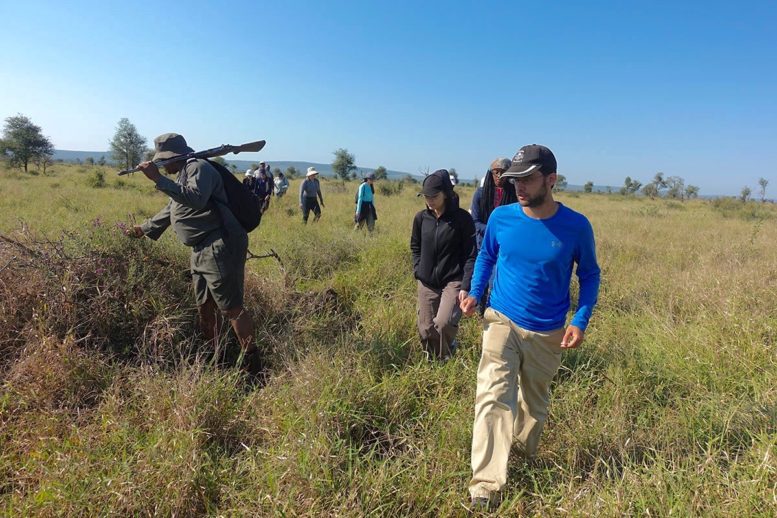
July is America’s most popular vacation month, and with school out for the summer, many families have time to take longer trips abroad. But these dream vacations can quickly turn into nightmares without proper planning.

“If you want to come back with happy memories, it is extremely important to stay safe and healthy during your trip, and avoid picking up a bug that will make you sick after you return,” says Dr. Aileen Marty, a professor at Herbert Wertheim College of Medicine who is an experienced world traveler; she’s visited 51 countries! Just last month she was in South Africa teaching her annual summer course for premed students. Marty is also director of the FIU Health Travel Medicine Program and Vaccine Clinic.
Visit a travel medicine specialist
A visit to a travel medicine specialist like her should be at the top of your to-do-list at least 4-8 weeks before traveling.
“We’ll make sure all of your vaccines are up-to-date. We can tell you if there are special vaccines recommended for the places you’re going. We can give you preventative treatments like malarial pills, and warn you of current disease outbreaks and how to protect yourself,” Marty says.
You may also need to see a doctor when you get back from your trip. Marty points out that some illnesses may not cause symptoms until after you get home. Make sure to tell your doctor where you’ve been and what you did on your trip.
But let’s not get ahead of ourselves. Here are some other steps she recommends you take prior to traveling.
Do your homework
- Monitor the State Department for travel warnings and alerts, and enroll in Smart Traveler Enrollment Program (STEP) which registers you with the nearest U.S. Embassy or Consulate.
- Check for disease outbreaks, problems with the food and water supplies, and recent natural disasters that may hamper travel in the area you’re visiting.
- Is it a wooded area? Are there problems with tick, mosquito, flea or other vector transmitted infections? You can pre-treat your clothing with insect and tick repellent (Permethrin). You can take pills to prevent malaria which is spread by mosquitoes.
- What will the weather be like? Pack appropriate clothing.
Pack a travel health kit
- Take along prescription and over-the-counter medicines you use routinely. Click here for a list of what the CDC recommends you pack.
- Purchase travel health insurance or make sure your health insurance covers you overseas, and pays for evacuations, if needed. Don’t forget your insurance card!
- Pack extra glasses or contact lenses, and/or your most recent prescription.
Have an emergency contact
- Make sure your designated emergency contact person has copies of your itinerary, passport and credit card information and knows how to get a hold of you.
Once you’ve done your homework, visited your travel doc, secured insurance, and packed your passport and bags, you’re pretty much ready for your travel adventure. But before you go, Marty, has one more piece of advice. “Prepare for the unexpected.”
That is what adventures are all about.
To make an appointment with a travel medicine specialist at FIU Health, call 305-FIU-DOCS (305-348-3627).





